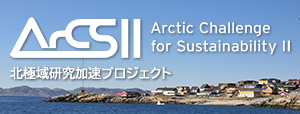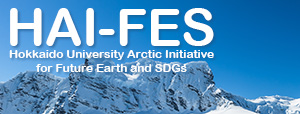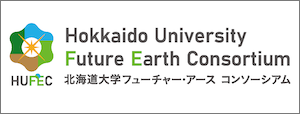About Us

Who we are
In the Arctic region, where global warming is rapidly advancing, not only environmental changes but also impacts on human society are occurring, and the impacts are spreading to the natural environment and society outside the Arctic region. Therefore, it is an urgent international issue to grasp the actual situation of environmental changes and find solutions, adaptation measures, and mitigation measures for social and economic impacts.
- Along with integrating the research capabilities of the Arctic Research Center, Graduate School of Engineering, Graduate School of Environmental Science, Graduate School of Science, and Slavic Eurasia Research Center, we will strengthen the domestic industry-academia-government collaboration network and conduct overseas research as an international collaboration research base. Together with the institute, we will launch the “Future Earth Global Arctic-Net (FEGA-Net)” to promote problem-solving research that contributes to the United Nations SDGs.
- FEGA-Net aims to accumulate academic knowledge from around the world, elucidate the changing reality of the natural environment and its fluctuation mechanism (Goal ①), and research on sustainability to meet the needs of the Arctic region (Goal ②), work on policy proposals (Goal ③) for the sustainable development of society and the economy facing change.
- With the framework and results of this project, we will continue to develop human resources who can play an active role in the Arctic field through the reorganization including the participation of the Arctic Research Center of the Graduate School of Environmental Science, which is scheduled during the 3rd medium-term plan. The goal is to do that.
Our annual work plans
(Year 2020: Actual results)
- Preparation for installing PM2.5 sensors in the Arctic Circle and northern Japan, preparation for permafrost and forest ecosystem surveys, and preparation for waste and pollution treatment surveys in the small Arctic community. Urban weather data collection.
- Analysis of marine ecosystem changes in the Bering Sea and preparations for sea ice observation. Examination of methods for grasping the actual condition of sea ice.
- Fusion of academic knowledge, conventional knowledge, and traditional knowledge, problem analysis in industry-academia-government partnership.
(Year 2021)
- PM2.5 sensor installation, analysis of changes in air pollution under the COVID-19 epidemic, analysis of the effects of warming and fire on frozen soil, analysis of marine ecosystems, detection of sea ice conditions, field surveys of small Arctic community communities.
- Building an international collaboration infrastructure for FEGA-Net, holding international workshops, and planning international collaboration research.
(Year 2022)
- PM2.5 analysis of spatiotemporal variability and Arctic marine ecosystems, waste disposal flow, assessment of ship navigation risk.
- Held an international problem-solving research workshop with the local community at FEGA-Net.
(Year 2023)
- Wide-area air pollution information infrastructure construction, marine ecosystem changes and social impacts, evaluation of building warming countermeasure methods.
- Hold an international workshop on problem-solving research with the local community at FEGA-Net.
(Year 2024)
- Create reports for policy makers, businesses, and local residents. Held a symposium to measure the results of research in society.
Expected Outcome
【Research / Education】
- Through university-wide cross-disciplinary collaboration, we will build a “comprehensive Arctic research center” that will lead the Arctic research internationally, and contribute to the enhancement of the university’s functions by expanding the research area.
- Through joint research with domestic and foreign industry-academia-government and local communities, it will lead to the creation of opportunities for industrial entry into the Arctic region and policy proposals to international Arctic governance institutions, as well as expanding international joint research and boosting the ratio of international co-authored papers. Disclosure of results and expansion of cooperation by holding symposiums.
【Social contributions】
- Through the construction of the world’s first Future Earth Global Arctic Network, we will raise international awareness of Arctic issues, form a contact point for matching the latest research results and advanced technologies with issues in the Arctic, and become an international Arctic governance organization. Realize continuous recommendations.
- By strengthening the industry-academia-government collaboration network, we will create and provide reports that cover the issues for sustainable use of the Arctic region in detail, and create and implement new joint and contract research.








